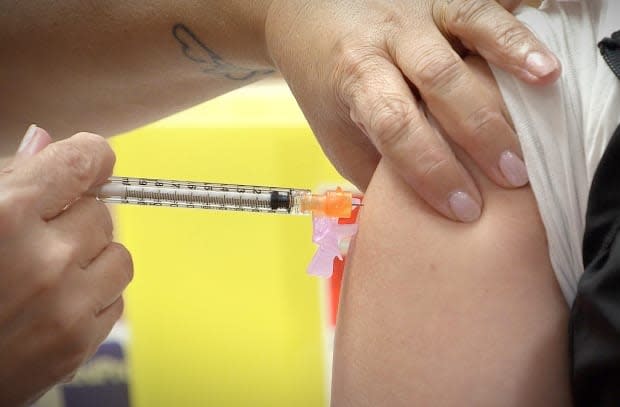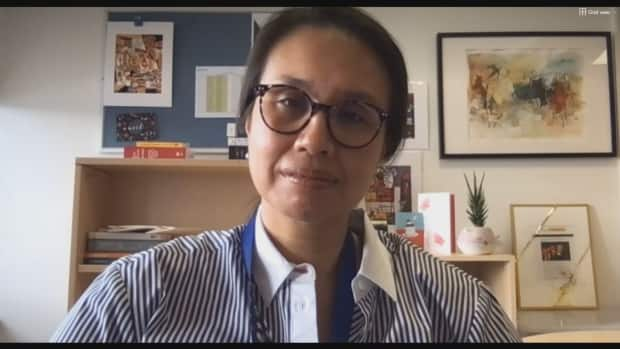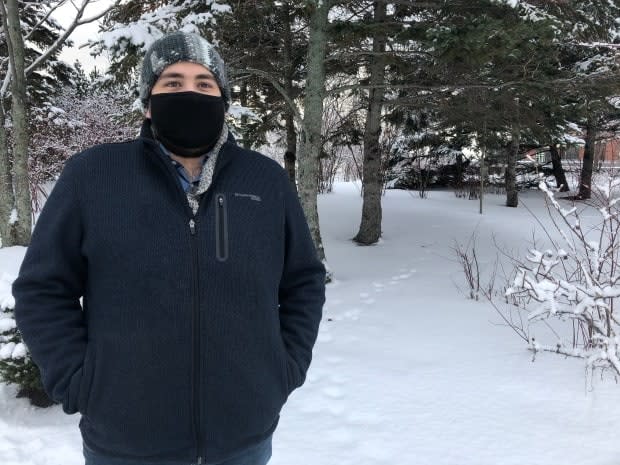People with underlying health issues wonder when they will get COVID-19 vaccines
As the number of people vaccinated against COVID-19 on P.E.I. continues to climb, some Islanders who are living with underlying health conditions say they've been left wondering when their shots will come.
P.E.I.'s COVID-19 immunization schedule is divided into three phases, each listing priority groups and giving a rough timeline for vaccination. The current schedule doesn't specifically mention people with underlying health conditions.
Dawna Bowles has been living with Crohn's disease for the last 36 years and takes medication that suppresses her immune system in order to manage her condition.
"When COVID first happened in March, of course they identified our group as being high risk, and we were told to be very, very vigilant in following the rules," Bowles said.
For Bowles, this has meant staying home more than the rest of us, in an attempt to keep from contracting the virus. She had previously experienced two severe respiratory illnesses: double pneumonia in both lungs in 2007 and pleurisy that required lung surgery the following year. She said she isn't willing to take any chances when it comes to COVID-19, given its potential for attacking the lungs.

Bowles said news that vaccines were being approved for use in Canada brought her some hope and she was excited to hear inoculations had begun. But that excitement was undercut by one unanswered question: When would it be her turn?
"I thought we would be in one of the top groups because we were identified as being high risk, and then the more we found out about the vaccine, we started getting mixed messages," she said.
I guess we feel forgotten about. — Dawna Bowles
Bowles said she's spoken to her doctors about getting vaccinated but no one has been able to tell her if or when that will be an option for her.
"I would just like to know where we fit. If it's a matter of 'I can't get the vaccine until fall,' that's fine. I'll adjust my life to accommodate that. But if there's something where I could get it sooner, I'd like to know that too."
She said she understands why older adults are the priority, but would like to see clearer guidance from public health about where younger people with serious health conditions will fit in line.
"I guess we feel forgotten about. I know there's many more more-pressing things to do right now with the rollout of vaccine and everything but, maybe, just don't forget about us," Bowles said.
"We are a high-risk group and right now we kind of feel at a loss."
Speak to your doctor about getting vaccine
Dr. Caroline Quach-Thanh, chair of the National Advisory Committee on Immunization (NACI), said the current recommendation for people living with underlying health conditions is to speak with your specialist or family doctor to decide whether you should seek the vaccine.
"Ask questions, discuss it, and if the benefits outweigh risks, then absolutely get vaccinated."
She pointed out that because people with conditions that affect their immune systems weren't part of the clinical trials of either the Pfizer-BioNTech or Moderna vaccines, there isn't data about how the shots might affect those people.

Quach-Thanh said as more people get vaccinated, health officials will be able to gather more information about vaccinating different groups, including those with underlying health conditions, which will help NACI make further recommendations moving forward.
"Everywhere, the U.S., the U.K., people are starting to vaccinate. We're eventually going to have some real world data that we're going to be able to use to make stronger recommendations, but at this point in time, it's being built as we're speaking."
Moving up the priority list
Back on P.E.I., Hunter Guindon said he also has concerns about when he'll be able to access the COVID-19 vaccine. He lives with cystic fibrosis, a genetic disease that affects the lungs and digestive system.
"The anxiety surrounding the possibility of catching a deadly virus — with lungs that are already fragile and lungs that typically can't withstand having a virus pre-COVID — there's a lot of anxiety around it," Guindon said.
His big concern is not whether he will get the vaccine, but when. He's 25 and said his doctors have told him he will likely have to wait until the vaccine is made available to the general public to be vaccinated. He said he'd like to see people with underlying health conditions, including cystic fibrosis, moved up the line to get the vaccine sooner.
"We don't have lung function to spare or the ability to fight off this virus and we need protection from it as soon as possible."

Speaking with CBC News: Compass host Louise Martin last week, Chief Public Health Officer Dr. Heather Morrison said the province is taking direction from the national immunization committee when it comes to vaccination distribution.
"Age seems to be the strongest independent risk factor associated with poor outcomes of the disease — even more so than those with chronic illnesses or autoimmune disease," Morrison said.
She said the province will keep following the national committee's advice and will pay close attention to those who have conditions affecting their immune systems to ensure that anyone who wants the vaccine is able to get it.
Quach-Thanh said the focus for Canada's first six million doses of vaccine must be those at highest risk —specifically, adults over 70, residents in long-term care homes, and health-care workers.
She said NACI is now figuring out which groups will follow as the country receives subsequent deliveries of vaccine.
"All those with underlying medical conditions will come next and so NACI is discussing that over the next few weeks, to come up with who will then be prioritized in the next 20 million doses that are going to come," she said.
The committee is also waiting on the results of a review into risk factors being done in Alberta.
"The next phase is also to see, you know, how do we prioritize the others? Do we go by age, do we give some priority to those with underlying medical conditions?" Quach-Thanh said.
She said she expects the committee to have more details about the priority groups sometime next month.
More from CBC P.E.I.

